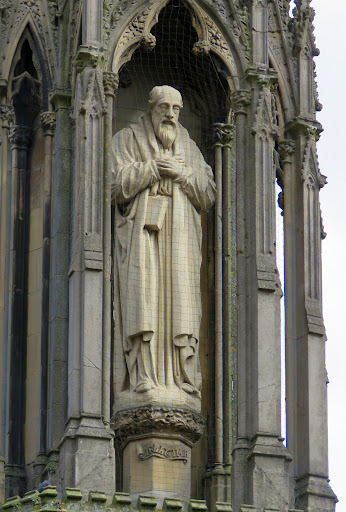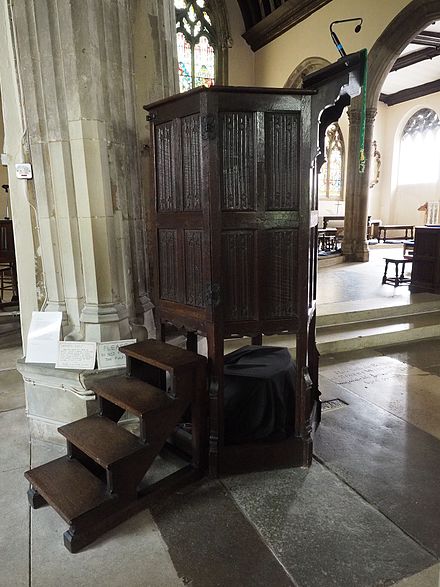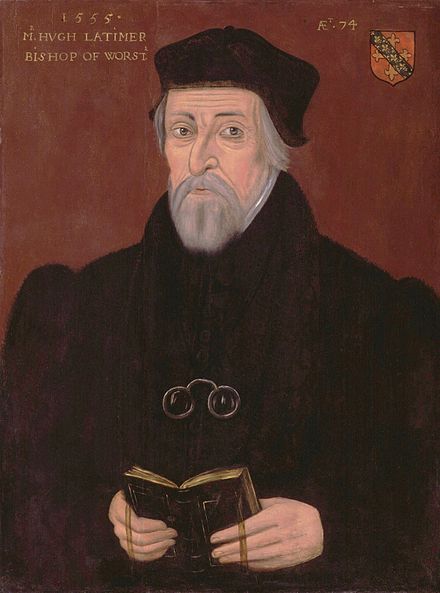Tudor church history is at the same time a truly fascinating, poignant and tragic subject. There were martyrs on all sides as the power swung from monarch to monarch, and as various clergy and others found themselves on the “wrong side” of the current situation, they often paid with their lives to witness to the strength of their convictions. On such figure was the Bishop of Worcester and Anglican reformer Hugh Latimer. By no means innocent of co-operation in the persecution of Catholics, he himself was burned at the stake for his Protestant views under the rule of Mary Tudor. All of this to me is profoundly sad. He, along with fellow bishops Cranmer and Ridley, is immortalised in a famous 19th century memorial monument to their martyrdoms in Oxford.

Bishop Hugh Latimer on the Martyr’s memorial in Oxford.
In these less rancourous and more ecumenical times, one can hopefully appreciate the spirituality and courage across the divides of Tudor ecclesiastical politics. Latimer was deeply committed to pastoral care, and encouraging among the laity a serious Christocentric piety. Nowhere is this more evident than in his sermons on the Lord’s Prayer.

Latimer’s pulpit in Cambridge.
Today I was reading one of them, his fourth in a series, and I was struck by some very lovely passages. The one I would share today is his reflection on how the adjective “Our” in the Lord’s prayer, in its opening and throughout, insists upon a profound equality and identification of all believers with one another, and the need to overcome any artificial divisions. For the prayer that is given to us by Christ himself to be efficacious, it must be offered in a spirit of not having disdain, arrogance or feelings of superiority towards anyone around us. This is a lesson whose importance never goes away, and is as timely as ever. We are in this together, as equals, in sincere humility, or else our Christian profession and prayer is no more than a posturing sham.
“Now to make an end: we are monished here of charity, and taught that God is not only a private Father, but a common Father unto the whole world, unto all faithful; be they never so poor and miserable in this world, yet he is their Father. Where we may learn humility and lowliness : specially great and rich men shall learn here not to be lofty or to despise the poor. For when ye despise the poor miserable man, whom despise ye? Ye despise him which calleth God his Father as well as you; and peradventure more acceptable and more regarded in his sight than you be. Those proud persons may learn here to leave their stubbornness and loftiness. But there be a great many which little regard this : they think themselves better than other men be, and so despise and contemn the poor ; insomuch that they will not hear poor men’s causes, nor defend them from wrong and oppression of the rich and mighty. Such proud men despise the Lord’s prayer : they should be as careful for their brethren as for themselves. And such humility, such love and carefulness towards our neighbours, we learn by this word “Our.”



